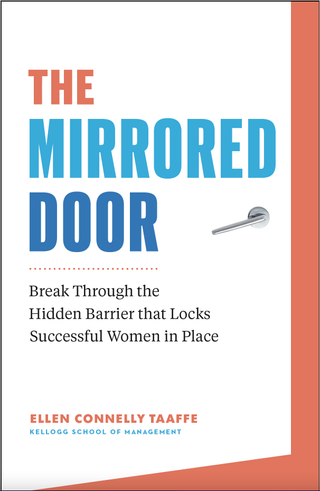

You’ve told yourself this is your year to find a new job. But the thought of starting a search seems staggering—especially when you sense that the job-hopping of the last few years seems to be on the decline, signaling that The Great Resignation is long gone. The latest numbers from the Bureau of Labor Statistics say fewer people are jumping ship, and more tech companies have announced layoffs as they right-size over-recruitment from the past few years.
Although hiring is down, the costs of living are on the rise, and economic uncertainties remain rampant. This is forcing many to hunker down in their current roles. In other words, “The Big Stay” is here to stay in 2024.
It’s important to note that quitting being at an all-time low does not give employers carte blanche to abandon workplace culture initiatives. Treating employees poorly only leads to less productivity, less creativity, and less output. For employees, The Big Stay doesn’t mean you have to give up; rather, it’s an opportunity to recalibrate–whether that means exploring outside roles or redefining your priorities internally.
One way to jumpstart your way into action is to break it into stages. Lay out what you want to do before rush-applying to a million postings on Indeed and LinkedIn. Take stock, explore the market and your options, and consider what matters most to you now.
So often, we don’t take the time to do this. We fall back on what was important to us in the past—like a specific job title or rigidly staying within the industry we majored in—and don't recognize who we are today and what we need now. As we grow our skills, we learn what we do and don’t aspire to, and the types of environments we do and don’t want to work in. So it’s helpful to take a fresh look at the recent past before launching into job search mode.
If you need a clearer roadmap for recalibration, I recommend the following steps to guide your strategy.
Understand your starting point
Recall your career to date. What were your most and least proud moments and why? Think about where you’ve performed well and not so well, and what you liked and disliked about your previous roles. What types of projects, people interactions, strengths leveraged, and roles felt best for you?
Stay In The Know
Marie Claire email subscribers get intel on fashion and beauty trends, hot-off-the-press celebrity news, and more. Sign up here.
- Identify the situations that led to your growth and satisfaction or your disengagement and dissatisfaction.
- Consider the interactions you’ve had, and the feedback received from your colleagues. In what ways do they depend on you? How do you add value to projects, conversations, or team dynamics? How might they describe you as an employee or leader?
- Create 1-2 sentences that summarize your career starting point.
Brainstorm future paths
Given that starting point, do you dream of more of the same, a new challenge to continue that progression, or a more radical change? Assess the roles or companies that could match your interests, further develop your career, and benefit from your experiences. When you think about a role, focus on what you’d do and how you’d develop and make an impact more than on job titles, which vary widely across companies.
- Use your starting point summary to engage with friends or former classmates and colleagues. Learn about their experiences in different roles and industries. Ask how they navigated their job searches, whether their new roles offered staying power, and what they’d do differently next time. Learn how easy it was to navigate cultures and changing life stage situations.
- Recap what you learned from others’ experiences, which will probably include everything from incremental next steps to bolder big moves. What inspired you about others’ paths?
- Review these examples and reflect on what excites you. Take note of the possibilities you don’t have the heart for, too, and use that knowledge to narrow your list of possibilities.
Create your priority list
Create a “top 10” list of your priorities for the next job. This includes the kind of work that you want to do and should also include aspects of the job that are important to your life. Your desired amount of travel, hybrid/flex policies, parental leave, retirement, and compensation are all fair game.
- Consider your ambitions and reflect on what characteristics of your next role could get you there. This might include factors like the size of the budget, a key skill set you’d utilize or hone, or the opportunity to manage people. The key is to list and prioritize them and assign a weight to each to total 100.
- Tally what your current job gives you and use this list as a screener of sorts to evaluate new jobs relative to both your current role and what matters most now.
- Identify your deal breakers to avoid falling for the exciting bells and whistles of some opportunities that hold surface excitement. While no job is perfect, it’s a good gauge of where we are and where we want to be. Keep this list handy and use it in your conversations to share what you’d value in a new opportunity.
Consider this first phase a time of discovery, giving yourself permission to be patient and rewarding yourself with each milestone of your search. Develop a mindset of curiosity to find something that sticks.
Once you're ready to move into the search and interviewing phase, leverage your recalibration as a strategic guide. Use your starting point to craft your narrative, recall your brainstorming to share how you can contribute in a new way, and speak to your priorities. Communicate how you're the best fit for your future employer, and vice versa.
Ellen Taaffe is a leadership coach, Kellogg Professor, former Fortune 500 executive, TEDx speaker, and award-winning author of, The Mirrored Door: Break Through the Hidden Barrier that Locks Successful Women in Place, addressing the internal barriers and workplace cultures that hold women back.
-
 39 Items That Increased My Screen Time This Week
39 Items That Increased My Screen Time This WeekSpotted in my daydreams.
By Aniyah Morinia Published
-
 Katie Holmes Cracks the Commuter Outfit Code
Katie Holmes Cracks the Commuter Outfit CodeHer relatable wardrobe staples strike again.
By Lauren Tappan Published
-
 Gwyneth Paltrow Loves This Reality Show and She's Never Been More Relatable
Gwyneth Paltrow Loves This Reality Show and She's Never Been More RelatableShe's a fan of having a "slovenly day," too.
By Meghan De Maria Published
